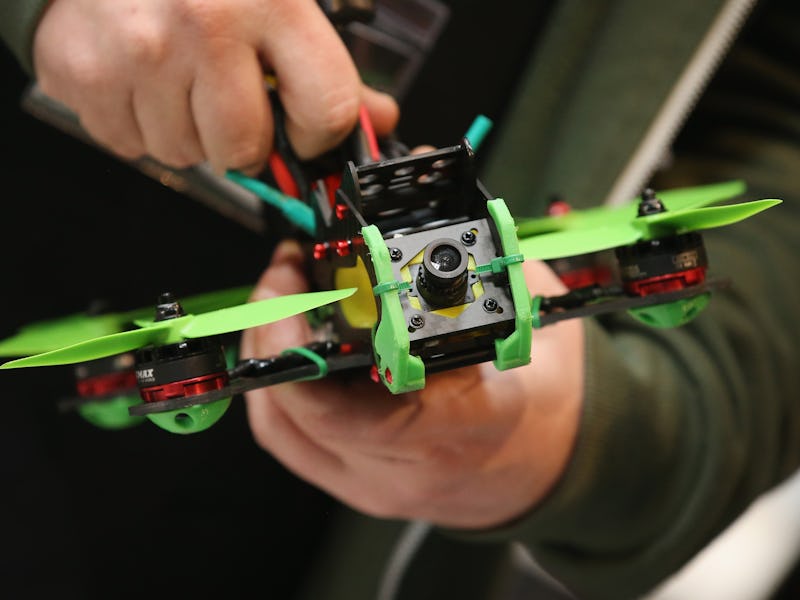Senate's New FAA Bill Requires You to Take a Drone Pilot Test Before Flying
A drone regulation bill is moving through Congress.

Right now, drone flight is like the wild west — take to the skies and see what laws and objects will stop you. But this week, Congress came a step closer to reigning in some concrete legislation around how consumers will fly drones in the future.
On Tuesday, the Senate passed S.2658, the Federal Aviation Administration Reauthorization Act of 2016, sending it to the House where it will likely face a contentious hearing.
The most interesting piece of the legislation is its introduction of a requirement that consumers participate in and pass an online test before they’re allowed to take to the skies. This test would be conducted by the FAA and would quiz potential pilots on where they aren’t allowed to fly and how to avoid manned aircraft. Drones weighing less than 0.55 pounds would be exempt from this test.
If enacted, the Senate’s bill would also put more focus on the enforcement of current drone regulations, as the bill calls for the FAA to start a pilot program that would intercept drones flying illegally near airports.
The Sky TV drone camera operator during day four of the Second Test match between New Zealand and Sri Lanka at Basin Reserve on January 7, 2015 in Wellington, New Zealand.
In terms of drone delivery services floated by companies such as Flirtey and Amazon, the bill calls on the Department of Transportation to establish a delivery certificate that companies need before being authorized to deliver packages by drones.
Students and professors in a University setting would be given greater freedom to fly drones so long as they are for research and educational purposes, and the bill would also classify micro drones weighing 4.4 pounds or less differently, which could have implications for how search and rescue operations are handled.
Furthermore, the act reexamines many aspects of commercial flight in the U.S., and it includes legislative muscle to finally push through the FAA’s transition to its “21st century air traffic control system,” called NextGen (which conspicuously doesn’t regulate drone traffic).
The Federal Aviation Administration Reauthorization Act now moves to the House of Representatives, where another, more controversial bill, the Aviation, Innovation, Reform, and Reauthorization Act (AIRR), is still being considered.